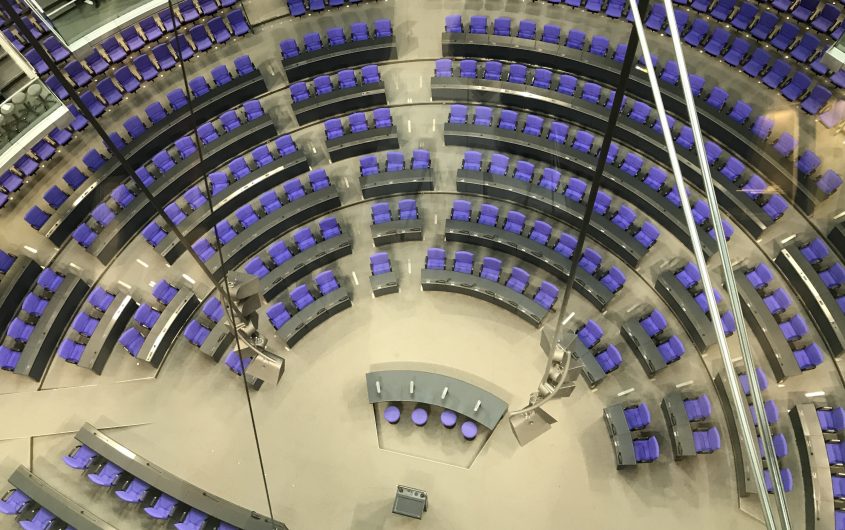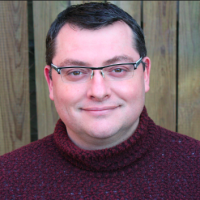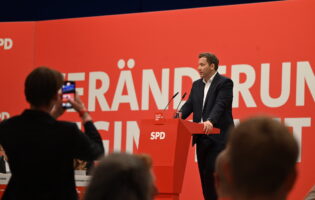
David McKelvey via Flickr
Not So Boring After All

Eric Langenbacher
Senior Fellow; Director, Society, Culture & Politics Program
Dr. Eric Langenbacher is a Senior Fellow and Director of the Society, Culture & Politics Program at AICGS.
Dr. Langenbacher studied in Canada before completing his PhD in Georgetown University’s Government Department in 2002. His research interests include collective memory, political culture, and electoral politics in Germany and Europe. Recent publications include the edited volumes Twilight of the Merkel Era: Power and Politics in Germany after the 2017 Bundestag Election (2019), The Merkel Republic: The 2013 Bundestag Election and its Consequences (2015), Dynamics of Memory and Identity in Contemporary Europe (co-edited with Ruth Wittlinger and Bill Niven, 2013), Power and the Past: Collective Memory and International Relations (co-edited with Yossi Shain, 2010), and From the Bonn to the Berlin Republic: Germany at the Twentieth Anniversary of Unification (co-edited with Jeffrey J. Anderson, 2010). With David Conradt, he is also the author of The German Polity, 10th and 11th edition (2013, 2017).
Dr. Langenbacher remains affiliated with Georgetown University as Teaching Professor and Director of the Honors Program in the Department of Government. He has also taught at George Washington University, Washington College, The University of Navarre, and the Universidad Nacional de General San Martin in Buenos Aires, Argentina, and has given talks across the world. He was selected Faculty Member of the Year by the School of Foreign Service in 2009 and was awarded a Fulbright grant in 1999-2000 and the Hopper Memorial Fellowship at Georgetown in 2000-2001. Since 2005, he has also been Managing Editor of German Politics and Society, which is housed in Georgetown’s BMW Center for German and European Studies. Dr. Langenbacher has also planned and run dozens of short programs for groups from abroad, as well as for the U.S. Departments of State and Defense on a variety of topics pertaining to American and comparative politics, business, culture, and public policy.
__
The Bundestag Campaign One Month Before Election Day
Lately, there have been two emerging narratives regarding the September 26th election for the German Bundestag. On the one hand, commentators are once again emphasizing how boring the campaign and candidates are. This has become a veritable cliché during the Merkel era, with one of these campaigns likened to a city council race in Würzburg. Indeed, during previous campaigns, polling trends settled into a pattern by the early summer and barely moved. Candidates have not been renowned for their charisma and inspiration—although it has been argued that Germans prefer “noncharismatic personalism.” The corollary to this is to bemoan the lack of vision and bold ideas that are presumably necessary to tackle daunting contemporary challenges.
On the other hand, many pundits are pointing out that this is the most important election in the world in 2021—that is certainly true if the rigged presidential election in Iran, the Virginia gubernatorial race, or Justin Trudeau’s snap election in Canada are the competition. Even if this is a bit overblown, selecting the successor to long-serving Angela Merkel—for the world’s fourth-largest economy and undisputed leader of the European Union in the midst of a pandemic and pronounced geopolitical tensions—is certainly important.
The first point, however, is increasingly being proven wrong. The 2021 campaign is turning out to be much different and more dramatic than anyone thought even a few weeks ago. The consensus over the course of the year was that the CDU/CSU would be the largest party—albeit with slightly lower support than in 2017. CDU leader and Union chancellor candidate Armin Laschet would most likely be the next head of government. True, for a brief moment after her selection as Green chancellor candidate in April, Annalena Baerbock was the frontrunner. Few thought this was a sustainable lead and indeed the Greens fell back a bit. Still, it was expected that they would come in second and that a Black-Green coalition would result—perhaps with the Liberals (FDP) in the three-way “Jamaica” coalition. (See here for a guide to the parties’ colors and the various coalition options).
The 2021 campaign is turning out to be more dramatic than anyone thought even a few weeks ago.
Over the last several weeks, the CDU/CSU has weakened considerably and is currently polling 10 points below their 2017 result and much lower than their polling at the height of the pandemic in 2020. The Greens are also struggling, down about 5 percent from their peak. There are numerous causes behind these developments.
The CDU/CSU is perhaps still internally divided after bruising fights earlier this year, first over the CDU chair position and then over who the chancellor candidate would be. It appears that many are having buyer’s remorse over not going with Bavaria’s Markus Söder. And the party may be suffering from pandemic fatigue—now being blamed for the prolonged and imperfect fight against COVID-19. It hasn’t helped that the state of North Rhine-Westphalia of which Laschet is the minister-president has the highest infection rate in the country at the end of August. A little earlier, the horrible floods in mid-July decimated many communities in that state. There was substantial criticism that the authorities failed both to alert the affected residents and to provide necessary assistance afterward. This is the bad luck of any incumbent.
Laschet and the CDU/CSU have also run a lackluster campaign, and their campaign posters and television ads have been widely mocked. For instance, a poster series depicting people with different occupations and the tagline “Making Germany Together” (Deutschland gemeinsam machen) used employees from the party headquarters. A television ad had a shot in a coal mine with Laschet the only member of a group with ash on his face—another shot took place in the Holocaust memorial in Berlin, which many thought was crass. Laschet has also made some gaffes, for example, laughing in the background of an event for victims of the July floods. Increasingly desperate, the campaign has brought out Merkel despite her reluctance to get involved. It is even employing “red scare” tactics reminiscent of the anti-communist “red socks” trope of the last century, warning voters that were the SPD to lead the next government, it might bring the dreaded Left Party into a coalition.
The real story right now is the strengthening of the SPD.
The Greens’ decline is a little more mystifying. Many predicted that the increasing evidence of extreme weather in Germany and across the world would have strengthened the environmentalist party. Then again, all mainstream parties have thematized related issues so that the Greens no longer “own” the policy area. Baerbock has also had quite a few missteps, such as plagiarism allegations around her campaign book and inaccuracies in her published CV. This has revived doubts about her lack of experience and some remorse that the more seasoned co-leader Robert Habeck was not chosen as chancellor candidate. The campaign slogan “Ready, because you are” (Bereit, weil Ihr es seid) has been decently received—although Der Spiegel called it “optimistic chlorophyll” and noted how few images of Baerbock there are. A television ad featuring a folk song with “greened” lyrics, has been widely mocked, especially by the party’s key younger demographic.
The real story right now is the strengthening of the SPD, now polling 5-7 percent above their recent lows and a couple of points ahead of their dismal 2017 result. Several surveys even had them as the strongest party. This is almost all due to the popularity of their chancellor candidate, the current Finance Minister Olaf Scholz. His centrist or center-left reputation, ample experience, and disciplined campaigning are resonating with voters. Unlike in previous years, the SPD has a professional and effective campaign with simple slogans like “Vote for a 12 euro minimum wage” or “Competence for Germany” with the tag line “Scholz will tackle it” (Scholz packt das an). It may have been an astute move to have the more leftist Saskia Esken and Norbert Walter-Borjans as party leaders and the more moderate Scholz as chancellor candidate allowing for outreach both to more leftist and more centrist voters. The party selected Scholz last summer and this head start may have helped him gain traction. The next few weeks will be critical to see if this lead will hold up. Scholz and the party have run a nearly perfect, extraordinarily disciplined campaign thus far. It is difficult to imagine that some mistake or gaffe will not occur.
All this being said, there has been some volatility in the polls over the last few years. On election day in 2017, both the CDU/CSU and SPD did several points worse than they were polling. The Alternative for Germany did quite a bit better. That party is currently in the 10-12 percent range—a little below their 12.6 percent result in 2017. But, if the polls are off again, it could garner 12-14 percent. Given that there is basically a three-way tie between the Union, SPD, and Greens, the outcome could come down to the wire. Still, an SPD-led coalition—probably the so-called “traffic light” of SPD-Greens-FDP—is more likely than at any other point in the campaign. We shall see if Scholz can maintain a lead or if Baerbock and Laschet can make up for some lost ground.
Boring this is not.









